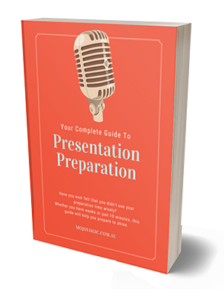Echo Chamber is a term commonly applied to the social media environment where we are fed the content an algorithm thinks we want to see. There are also offline, real-world echo chambers. They might exist in your organisation.
How will you recognise the signs?
What is an echo chamber?
An Echo Chamber is a closed system of communication where your existing opinions are played back to you. In an echo chamber, your beliefs are continuously reinforced. Here we can float in our personal comfort zone. We are satiated by consenting opinion and corroborating factoids.
Not hearing the voices of those that oppose you? You’re doing it wrong.
What’s the problem?
We see what we want to see and we hear what we want to hear. What’s wrong with that? Plenty.
1. Filtered Information
We all have necessary filters on the information that we receive. We are living in an era of information overload and without some filters, we would not be able to sort through the deluge. So, echo chambers, in part form because we are looking to be more efficient.
What filters do you have in place? Do you receive the majority of your information from particular internal networks, or industry sources? Do you recruit people with a similar background to yourself? Do you have limited sources of news and data? Are these sources validated?
Question the filters.
2. Poor decision making
Sound decisions are made once we traverse the landscape of relevant information, opinion and options. In divergent thinking mode, we consider a range of possible solutions and we are likely to be creative and innovative because we step out of the typical process. Decisions made within an echo chamber are poor by definition because they are based on incomplete or biased information.
Complex decision-making should be challenging. Once you have researched the possibilities you can evaluate the options. Convergent thinking is necessary as this is where we make definitive choices.
Does the culture of your organisation allow for dissenting opinions? Are decisions taken quickly without adequate time spent understanding the landscape? Does decision making happen too quickly? Is it too easy?
Tough decisions should hurt a little.
3. False confidence
Suppose I were to adopt a particular belief. I will then create a label for myself that denotes my membership of a specific tribe. I could be a paleoliberal – egalitarian – pescatarian – minimalist. We know that technology will accentuate the tribalism of each chosen camp. My analog existence may also reflect the views I want to hear. I will engage with the right people, in the right forums. I will adopt the language, behaviour, and uniform to suit my tribe.
Cognitive immunization is a powerful force that helps us to ignore the evidence that might question our beliefs. There are versions of chosen tribes within organisations too. Excessive self-confidence is fueled by vocal agreement and suppressed disagreement. We see patterns of group-think and prevailing opinion that come in and out of fashion.
Do you find yourself defending before you listen? Do you automatically neutralise dissenting opinions? Do you acquiesce to the beliefs of more senior or charismatic people?
Valid systems of belief should withstand questioning.
The symptoms of an echo chamber at work
Echo chambers are perpetuated by the patterns of behaviour within a collective. You may be able to diagnose an echo chamber by examining your culture. One aspect of culture is the common language used by its inhabitants. Here are some phrases that might indicate a bubble:
We hire for cultural fit…
Our current thinking is…
That suggestion just won’t fly in our current environment..
We will need to confirm the optics on this…
We are all aligned…
Echo chambers, group-think, tribalism and information filters can be difficult to spot. it is easy to fall into the trap of ‘this is just the way we do things around here‘.
The Challenge
Our knowledge often depends on the information provided by others. In fact, there are long chains of experts behind our accumulated wisdom. The complexity of the business environment means we must rely on second-hand knowledge. In order to form an opinion on a particular strategy, we will seek the evidence and opinions of suitably qualified people that have the time and specialisation that we lack.
Autonomy of thought is a simplification. A nice idea, but rather impractical. It is unreasonable to presume we can validate all the information, evidence and advice that underpins our decisions.
The challenges of our current environment include:
- A burgeoning community of bloggers, thought leaders and experts – is there sufficient depth?
- Social media platforms pushing us articles that support our view – are we missing critical facts?
- Organisational culture – are we perpetuating a closed loop?
- Political correctness – can I say that out loud in this group?
- Complexity & overwhelm – where will I find the time?
The fact that there are significant challenges should not prevent us from increasing our awareness and taking whatever action we can.
Strategies
In her book No! The Power of Disagreement in a World that Wants to Get Along, Charlan Nemeth argues the case for argument. Nemeth reminds us that good decision making requires divergent thinking. You must listen to the rebels, the voices you don’t want to hear.
Here are some practical suggestions to break free:
1. Practice critical thinking
2. Embrace the rebels
3. Ask for contrary opinions
4. Create open forums for debate
5. Broaden your sources of information (technology & people)
6. Examine your tribes
7. Be brave
If you were to peer inside the meeting rooms of the most robust teams and organisations you would not find orderly polite discussions. You would find robust disagreement. It would be loud, messy and emotive. When they emerge into the public eye their position would be stronger for it.
Many CEOs and leaders think that silence is indeed golden, that concesus is bliss. It is- sometimes. But more often what it signifies is that there are no respected processes for surfacing concerns and dissent.
– Margaret Heffernan


